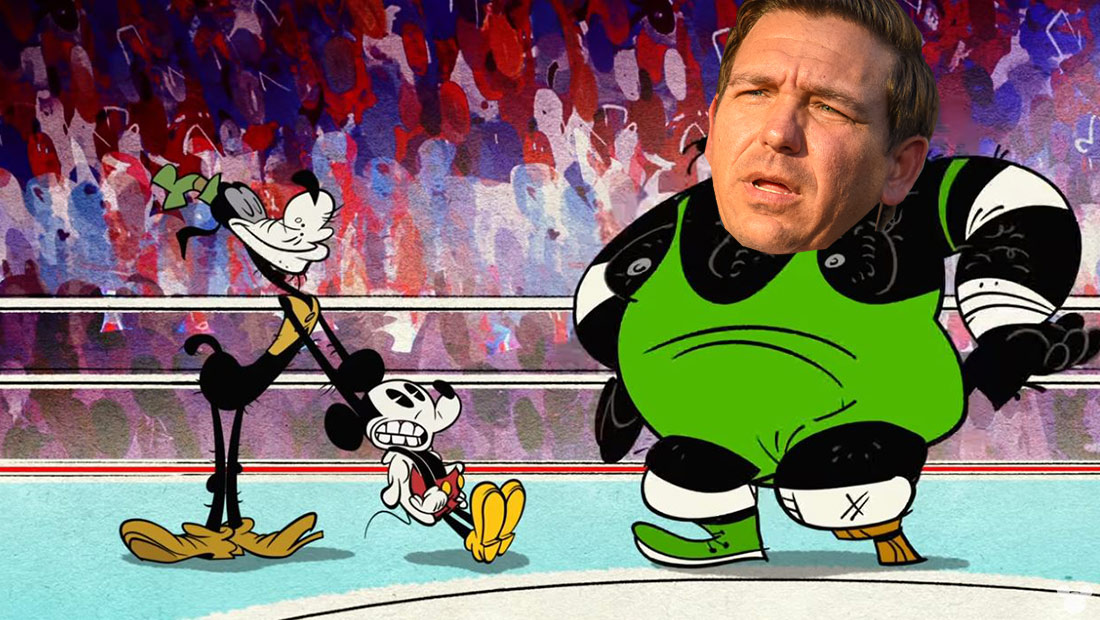
The special relationship between Disney and the state of Florida has faced increased scrutiny in recent weeks, with the situation coming to a head after DeSantis’ polemical Florida Parental Rights in Education bill (critically known as the “Don’t Say Gay” law) was passed last month. The controversial legislation calls on school districts to avoid LGBTQ+ topics “when not age-appropriate or developmentally appropriate for students.”
Editorial illustration at top: DeSantis photo via Wikimedia Commons; still from “Tapped Out” © The Walt Disney Company
Over the following days, Disney workers throughout nearly all divisions of the company expressed dissatisfaction with Chapek’s weak response and started a campaign of walkouts. DeSantis claimed similar outrage, using the opportunity to villainize Disney, accusing the company of telling people how to raise their kids. That old chestnut.
Now, many tax experts and lawmakers are warning that some of the cost of those services may fall on local taxpayers after the new law goes into effect. Some are also suggesting that a repeal of the company’s self-governing status could leave local taxpayers saddled with more than billion in Disney bond debt.
Opponents of the measure argue that it is poorly written and will create an unsafe environment for LGBTQ+ youth. The law also restricts support services including counselling for students, and allows parents to sue schools they believe have violated the law.
He also denounced the company as hypocritical, arguing that Disney only takes a stance when politically convenient. If the two sides of the “Don’t Say Gay” argument can agree on little else, at least they seem to agree on that.
Under different circumstances, DeSantis’ plans to revisit the state’s relationship with Disney World might have met bi-partisan support. In the past, representatives from both sides of the aisle have suggested a reevaluation of the relationship between the state and the company. There are many who believe that Disney has been able to leverage their status into avoiding paying millions in taxes and fees over the decades.
The bill will now head to Republican governor Ron DeSantis’s desk for confirmation, with the governor having previously made it clear that he will sign the measure into law. It then will go into effect on June 1, 2023, dissolving Disney’s longstanding autonomy.
However, this week’s developments come amidst an escalation of DeSantis’ feud with Disney and Chapek. Several Florida lawmakers are questioning the timing and motivations behind the push to rescind Disney World’s self-governing status.
On March 11, after facing intense scrutiny from the public and Disney employees alike for the company’s continued support of anti-LGBTQ+ politicians in Florida, Disney CEO Bob Chapek belatedly apologized to employees and suspended all political donations in the state. The company had donated nearly 0,000 to members of the Florida legislature over the past two years, including ,000 to DeSantis himself, according to Popular Information.
Disney’s Reedy Creek Improvement District was established in 1967. Under the terms of the agreement, the Walt Disney Company is responsible for services on its property which would otherwise be provided by the state of Florida. These include fire protection, emergency services, water, utilities, sewage, and infrastructure.






